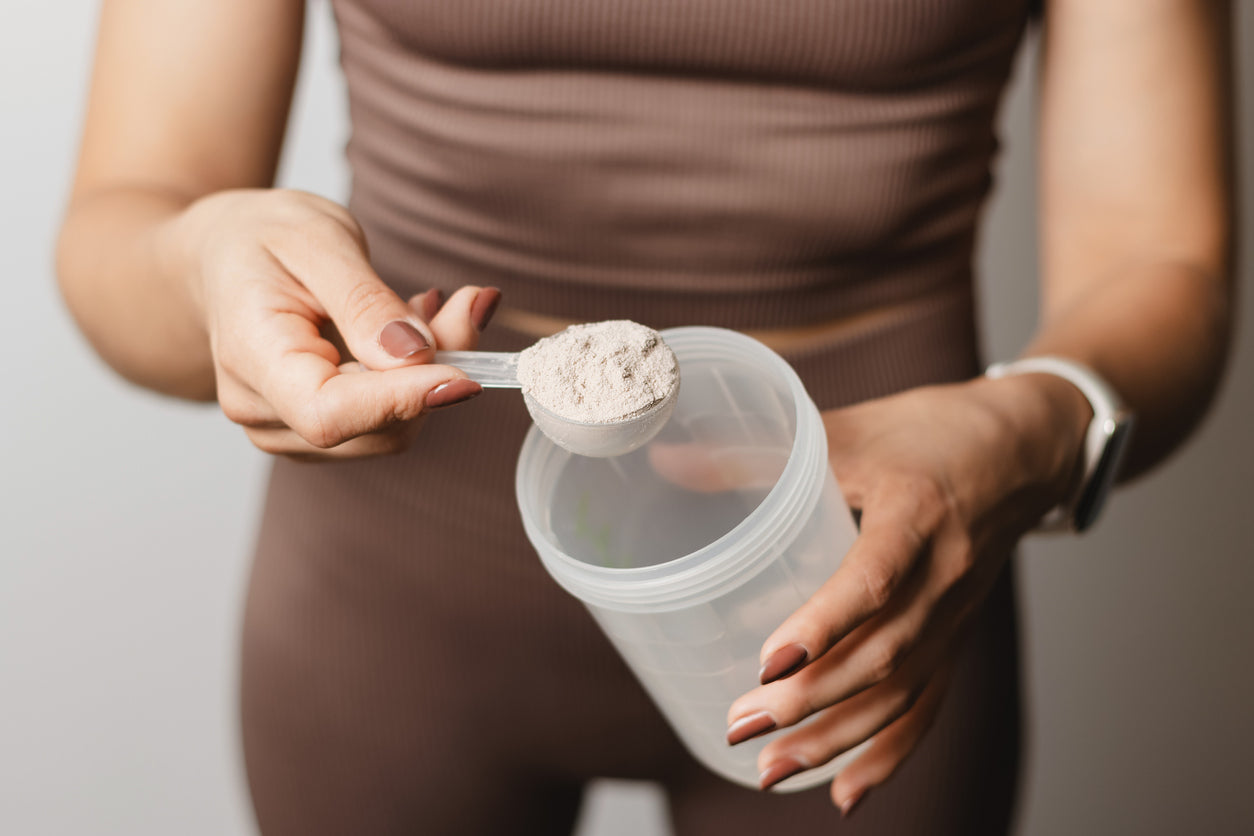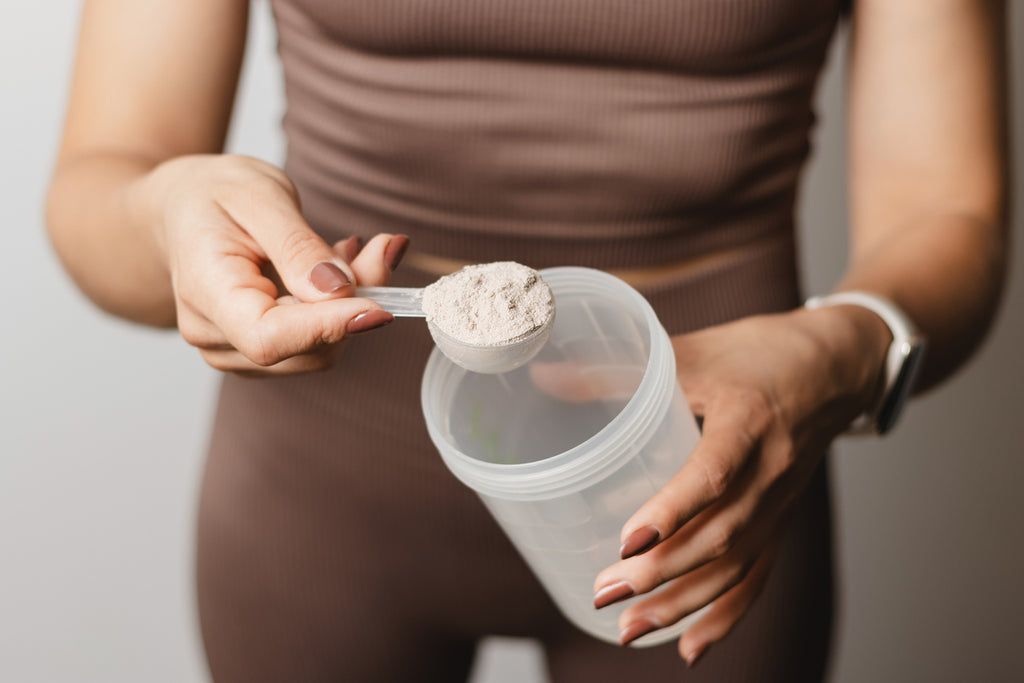If you’ve ever been in the market for a good protein powder or post-workout drink, you’ve certainly encountered whey as an ingredient. The liquid remaining after milk has been curdled and strained, whey itself is classified as a byproduct. When you see it listed in a powder or drink, it is referencing the whey protein that can be pulled from this byproduct. But here at Hush & Hush, we say no whey! Why? We’re diving into the topic today … keep reading to learn about the downsides of whey.
Whey Might Hurt Your Gut Health
We are passionate about upping that protein intake. But we also care deeply about digestive wellness. Whey protein certainly can’t be used by those with dairy intolerances and allergies, as it does come from milk. However, even those who process the average glass of milk with zero issue should probably avoid whey.
According to a study published in Science Direct in 2017, the lactoferrin present in whey protein can disturb the functioning of good bacteria in the gut. This is decidedly bad news. Your gut health is not only linked to the ability to properly digest and enjoy a variety of foods. It also plays a role in your mental wellness, immune system function, metabolism, and more.
Inflammation May Increase With Use of Whey
While many things in our modern diet can be inflammatory, including excessive alcohol consumption and overly processed foods, whey protein is a key culprit. Dairy, too, contributes to inflammation, and when you’re consuming it as part of your daily routine like you would with a whey protein powder … the overall impact can be troubling.
If you are someone who suffers from an autoimmune condition or other inflammatory disease, consuming whey protein on a daily basis could be enough to increase your chronic inflammation all on its own.
While most of us know that doesn’t sound good, the facts are alarming. “More than 50% of all deaths worldwide are attributed to chronic inflammatory diseases, including cancer, cardiovascular disease, dementia, stroke and diabetes.” Allowing inflammation to grow or fester is a serious matter. Why add risk by consuming something known to cause it on a regular, daily, routine basis? No thank you, no whey!
Your Hormones Could Be Influenced by Whey
Yikes. While all food has the potential to help or harm our hormonal balance, whey protein is a top offender. It is generally known to cause acne in many individuals. Why? Because the large amount of androgenic steroids, a contaminant frequently found in dairy products, causes a speedy hormonal imbalance.
While no one wants to consume something that agitates their skin, that isn’t the only reason to be wary of whey with regard to its hormonal impact. While some hormonal shifting is normal throughout our lives, it is usually confined to certain periods of bodily change, like puberty, pregnancy, postpartum, and menopause. Outside of these events, it isn’t normal to have extreme hormonal imbalance, and you should work to figure out what is causing the issue if you do. Long-term hormonal imbalance can play a role in everything from the development of certain cancers to uncontrollable weight gain that leads to conditions like heart disease, diabetes, and more. With whey protein, you could be consuming something that contributes to hormonal imbalance every single day. No whey!
Environmental and Ethical Implications of Whey
On top of the negative effects whey protein may have on your individual health, it adds to some ongoing societal issues. If you are vegetarian or vegan, it may be due to the health benefits. But it could also be because of the environmental cost and ethical challenges of meat and dairy production.
Dairy products contribute 3.1 gigatonnes of CO2 equivalent per year. That is … a lot. For many, the added understanding that dairy cows are mistreated more often than not is enough to seal the anti-dairy deal. If that sounds like you, whey protein is not where it’s at.
The Alternative to Whey Protein
Sorry to be a little doom and gloom today, but now we’re ready to turn it around! Happily, there is an alternative to whey protein powders that is better for you, the environment, and animals of all kinds: plant protein.
With a plethora of sophisticated, carefully studied formulas out there, plant protein powders can be the ultimate solution. You’ve definitely got an abundance of choices, but we simply must recommend our very own PlantYourDay.
Made with organic pumpkin and pea protein, this vegan protein powder is pH balancing and alkalizing. It has 110 calories, 16 grams of protein, 1 gram of sugar and 2 grams of fat, along with prebiotics and probiotics. Plus, the delicious chocolate flavor adds a treat to your day.
Join us in saying no whey! Instead, discover the fully plant-based and health-oriented way to Plant (and Protein) YourDay.
If you make the switch from a whey protein powder to PlantYourDay, let us know but using #nowheyplantyourday on social media.


